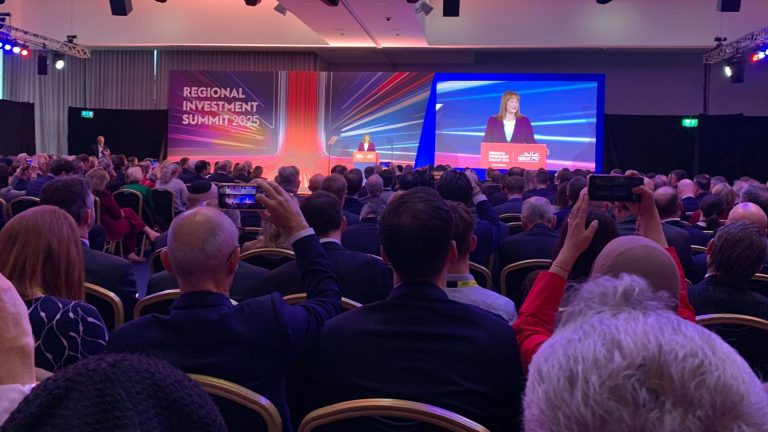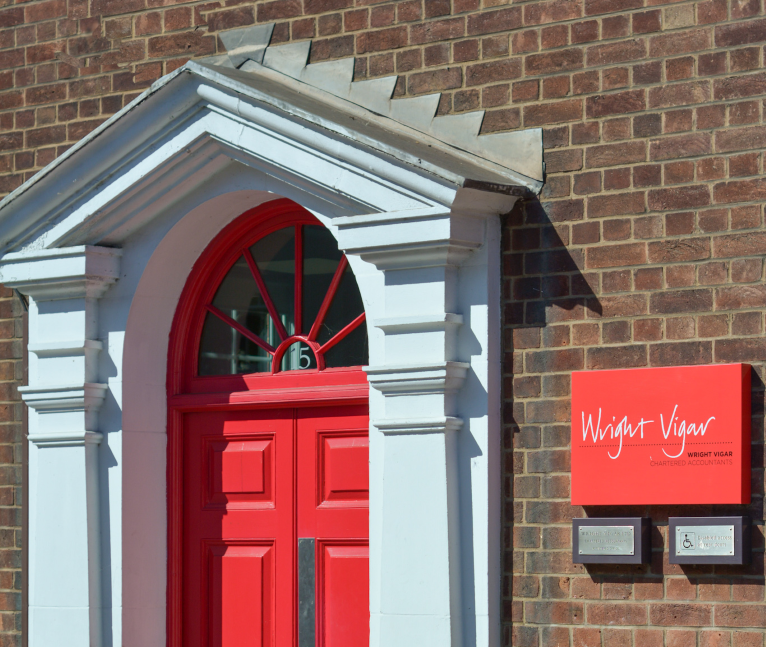East Midlands mayor displays regional potential to global investors
Derby training provider marks decade of growth with £2 million turnover
Derby-based training firm Nine Dots Development has reached a £2 million annual turnover in its tenth year of operation. Founded in 2016 by Jordan Burke and James Davison, the company has grown from a £73,000 first-year turnover to working with global clients including BAE Systems, Fred Perry, Scania, and Associated Press.
The company employs 25 staff and a network of 50 consultants delivering management training, apprenticeships, and leadership development to organisations across the UK and overseas. Nine Dots is accredited by the Chartered Management Institute and the Institute for Leadership and Management, and is rated ‘Good’ by Ofsted.
Its expansion has been driven by the continued demand for professional development and leadership training following the introduction of the Apprenticeship Levy in 2017. The business has delivered programmes in markets including France, Germany, Italy, Spain, Australia, and the United States.
Nine Dots’ portfolio covers leadership, management, HR, and emotional intelligence training, with a focus on helping employers develop effective leaders and teams. The company’s founders aim to build on its international growth and strengthen partnerships with employers seeking to improve workforce capability and performance.
RSM UK makes Midlands director promotions
Bold new UK headquarters for global digital services provider

Wright Vigar achieves Payroll Assurance accreditation from CIPP
Rolls-Royce outlines plans for new Derby facility
Rolls-Royce is planning a new manufacturing services building at its Sinfin A site in Derby as part of ongoing efforts to modernise its infrastructure.
The proposed two-storey structure would cover approximately 3,000 square metres and include manufacturing areas, offices, and welfare facilities such as a canteen and toilets. The design features a sloped roof up to 12.6 metres high, fitted with solar panels and rooflights to improve energy efficiency.
According to documents submitted to Derby City Council, the project aims to replace older infrastructure and improve operational performance across the site. Construction is expected to take around ten months, with no changes proposed to existing site access.
Rolls-Royce has asked the council to determine whether an environmental impact assessment is necessary before submitting a full planning application. A decision on that request is anticipated by early November.
The development would further strengthen Rolls-Royce’s long-term investment in its Derby operations, where it continues to upgrade facilities to meet modern health, safety, and environmental standards.
Atos invests £10m to boost East Midlands tech growth
Atos is strengthening its presence in the East Midlands with the launch of a new Digital Agentic Centre in Nottingham, part of a £10 million investment to advance the UK’s digital infrastructure.
The Nottingham facility will drive innovation in artificial intelligence and automation, developing technologies that enhance efficiency, reliability and productivity for public and private sector organisations. It forms a key part of Atos’ strategy to anchor more high-value digital work in the region, positioning the East Midlands as a growing hub for advanced tech capability.
Alongside the new centre, Atos will extend its graduate and apprenticeship programmes to create around 50 new roles by 2026. These will support the development of local expertise in AI, cybersecurity, cloud computing and data analytics, helping build a stronger regional workforce equipped for the next wave of digital transformation.
Michael Herron, Head of Atos UK&I, said, “Our new sovereign offerings will ensure our clients have a future-ready end-to-end IT estate under their control so that they can easily adapt to any regulatory or geopolitical changes. For businesses in the public, defence and critical national infrastructure sectors, the need for sovereign AI capabilities is mission-critical, and we’re proud to be working with them to make safe and reliable digital and AI development possible.
“As part of this, we are reimagining what an IT career pathway looks like in an age where humans and AI co-exist together. Our new early-career roles will give young people in the UK a multi-faceted career in the digital arena. Sovereignty, for us, includes nurturing the next generation of tech talent in the UK&I.”
Atos’ investment aligns with its wider national strategy to strengthen regional resilience, advance sovereign digital capabilities and build a sustainable pipeline of technology talent across the UK.
Heineken invests in Northamptonshire pub as part of wider UK upgrade
The Five Bells in Bugbrooke, Northamptonshire, is undergoing a major refurbishment following a £400,000 investment by Heineken-owned Star Pubs & Bars and local operators Bups Chaggar and Denis Gill. The redevelopment is expected to create 15 jobs and marks one of several regional projects under Heineken’s £40 million national pub estate investment for 2025.
Of the total, £3.1 million has been allocated to venues across the East Midlands. The Five Bells, closed since mid-2023, is scheduled to reopen in early December.
The project includes a full interior and exterior overhaul, with redesigned dining and bar areas, upgraded accessibility and facilities, and a new kitchen layout aimed at expanding the menu options. The building will feature new furnishings, lighting, and décor, while the exterior will be repainted and fitted with new signage and outdoor seating areas.
The pub will offer a varied food menu alongside traditional drinks, operating daily with extended food service hours through the week. The refurbishment aligns with Heineken’s broader strategy to modernise its UK pub portfolio and strengthen partnerships with local operators.
BGF prepares £500m institutional fundraise to expand UK investment base
BGF is preparing for its first external capital raise, seeking up to £500 million from institutional investors to broaden its funding beyond its founding banks—Barclays, HSBC, Lloyds, and NatWest. The move marks a strategic shift as the firm aims to diversify its investor base and strengthen its capacity to finance small and medium-sized enterprises across the UK and Ireland.
The planned raise, expected in 2026, follows BGF’s commitment to invest more than £3 billion over the next five years. Investment bank Lazard has been appointed to advise on the process. The new funds would allow BGF to channel additional capital into growing companies, aligning with government efforts to attract long-term institutional investment through initiatives such as the Mansion House Accord.
Since its formation in 2011, BGF has invested over £4.7 billion in more than 600 businesses, creating around 27,000 jobs and contributing £7.1 billion in revenue growth. The firm reports a 21.4% internal rate of return since 2016, highlighting its performance in backing growth-stage companies through minority stakes.
BGF’s next phase signals an evolution in the UK’s growth capital landscape, as the firm adapts to increasing competition from private equity, family offices, and debt funds while maintaining its regional focus outside London and the South East. Recent exits include Brisant Secure, Fulfilmentcrowd, and Braidwater.












